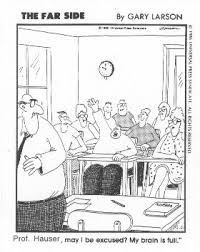“Innocent sleep. Sleep that soothes away all our worries. Sleep that puts each day to rest. Sleep that relieves the weary labourer and heals hurt minds. Sleep, the main course in life’s feast, and the most nourishing.”
So wrote William Shakespeare.
I’ve never really thought of `The Bard’ as being a cognitive scientist but he is uncannily close to the truth with those words if we take a brief dive into sleep science research.
So, what is your sleep routine? Are you a morning or a night time person? Do you go to bed at same time every night or just whenever?
I’m a night time person myself and often don’t get to bed till midnight or later if I get engrossed in some creative project. At the other end of the day I wake early, hate sleeping in and am a big fan of sunrises so, if pre-dawn sky looks promising will often head out with camera, tripod and thermos of coffee to watch the new day unfold. As a student I was as guilty as the next man of pulling a few too many `all-nighters’ in the run up to exams or during post exam party season. My first post-university job was as a `Water Bailiff on the Isle of Lewis in the Outer Hebrides and involved night shift work -patrolling the river after dark looking for poachers! And it doesn’t get dark till very late in summer on the Outer Hebrides (Great use of a zoology degree, eh?). In my late 20’s I crewed on an private Antarctic expedition ship for over a year where our `watches’(shifts) ran four hours on 8 hours off over the 24 hour cycle. As part of the expedition I spent 11 months in a tiny hut on the Antarctic continent with just 2 companions. There we went from 24 hours daylight to 24 hours darkness that lasted about 3 months ( It would be fair to say that the `novelty’ of 24 hours darkness wears off fairly quickly !). The terms `night’ and `day’ as determined by the hands on the clock lose their meaning. I quickly discovered that the key to maintaining daily motivation, mental and emotional balance was `routine’. Having a routine for the `day’ meant Antarctic night became an experience I could relish and cherish forever !
Outside of those diurnal extremes I’d always held to the belief that it doesn’t really matter when you go to bed? Life is for living, right? The body will tell you when it wants to sleep? What ever time that happens to be that day doesn’t really matter!
How wrong I was!
I’ve recently discovered that there’s a lot of research that says it does matter!
Not just when you sleep but how much sleep your body gets.
What’s more, the implications of not sleeping well and regularly could have profound effects not just on your ability to learn but on your cardiovascular system , reproductive capacity and immune system. So as we look for ways to maximise our protection against CoVid19 a good night’s sleep may well be another powerful tool in the cupboard.
It is clear that far from being at rest during sleep your brain is beavering away and working very hard to keep us healthy, and sane.
Sleep is our superpower according to brain scientist Prof Matt Walker.
In his short TED talk, he eloquently presents us with some sobering research and conclusions on how we potentially abuse our bodies through our sleep habits.
The data and conclusion presented in his talk blew me away when I first watched and this along with further reading on the topic has made me re-evaluate my current sleep regime.
Have a look for yourself and if not convinced, here a few more links on sleep science you may find interesting:
Why do we sleep? Russell Foster
Russell Foster is a circadian neuroscientist: He studies the sleep cycles of the brain. And he asks: What do we know about sleep? Not a lot, it turns out, for something we do with one-third of our lives. In this talk, Foster shares three popular theories about why we sleep, busts some myths about how much sleep we need at different ages — and hints at some bold new uses of sleep as a predictor of mental health.
The brain benefits of deep sleep — and how to get more of it
Dan Gartenberg
There’s nothing quite like a good night’s sleep. What if technology could help us get more out of it? Dan Gartenberg is working on tech that stimulates deep sleep, the most regenerative stage which (among other wonderful things) might help us consolidate our memories and form our personalities. Find out more about how playing sounds that mirror brain waves during this stage might lead to deeper sleep — and its potential benefits on our health, memory and ability to learn.
Sleep-Engineering: Improve Your Life By Manipulating Your Sleep
Penny Lewis Lewis is a neuroscientist at the University of Manchester, where she runs the Neuroscience and Psychology of Sleep (NaPS) lab. Based on the latest neuroscientific research Penny Lewis shows why sleep is thought to be critical for combining and restructuring memories, and thus to form the basis of creativity.
Why Schools should start later for Teens
Wendy Troxel
Teens don’t get enough sleep, and it’s not because of Snapchat, social lives or hormones — it’s because of public policy, says Wendy Troxel. Drawing from her experience as a sleep researcher, clinician and mother of a teenager, Troxel discusses how early school start times deprive adolescents of sleep during the time of their lives when they need it most.
This talk is more related to US teens where many schools start ~ 7am. (Perish the thought !) but still worth a look.
Additional references related to some of the specific research cited in Prof. Matt Walker’s talk can be found here
Finally, a few starter tips for a good night’s sleep
- Go to bed at the same time, wake up at the same time, no matter whether it’s the weekday or the weekend. Regularity is king!
- Keep it cool! Aim for a bedroom temperature of around 18 degrees Celsius.
- Avoid the urge for that last look at your emails or just one more Youtube clip just before bed .
- If find yourself tossing and turning and not able to get to sleep, get out of bed and go to a different room and do something different. Your brain will very quickly associate your bedroom with the place of wakefulness, and you need to break that association. So only return to bed when you are sleepy.
- Try and avoid caffeine, nicotine, and alcohol before bed time
For more Healthy Sleep Tips from our Otago University Well Sleep Centre click here
So if you find yourself struggling with aspects of school work, prone to colds and flu and life just generally getting you down try re-evaluating your sleep routine.
In the words of a more modern prescient writer, the “Dean of science fiction“,
Robert A. Heinlein:
“Happiness consists of getting enough sleep. Just that, nothing more !”







Recent Comments